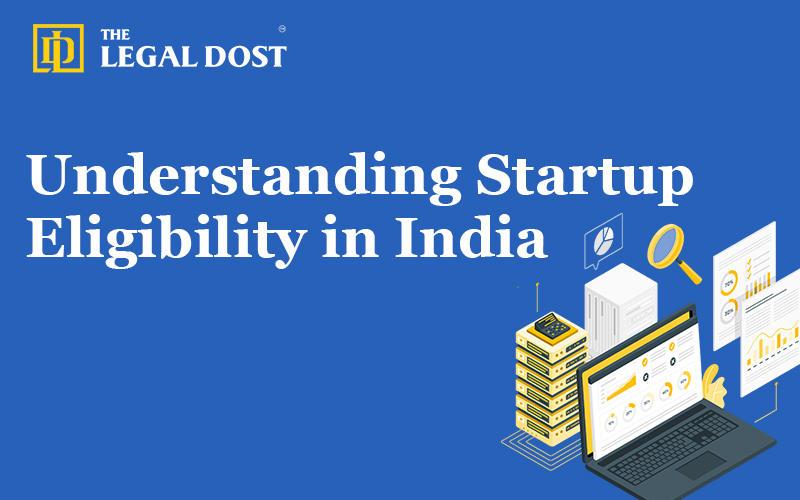India has become a hotspot for innovative ideas and business as a result of the government’s continual efforts to help businesses. The Startup India Initiative is important since it allows entrepreneurs to start and grow their businesses. What about the folks who can profit from this initiative? Let’s take a look at the startup eligibility standards and how this program benefits new firms in India.
What is the Startup India Initiative?
Startup India is a program that the Indian government created to encourage people to be businesses, come up with new ideas, and create jobs. It makes things easier for startups by exempting them from taxes and funds and making it easier for them to follow the rules. Indian wants to become a world leader in new businesses by making it easier for them to start up.
Eligibility Criteria for Startups
When it comes to Startup India registration eligibility, a business needs to meet these conditions:
- Incorporation Date: The entity needs to have been incorporated as a limited liability partnership (LLP), partnership business, or private limited company during the previous ten years.
- Annual Turnover: No financial year since inception should see the company’s yearly turnover surpass INR 100 crore.
- Innovation and Scalability: Innovation, product or service development, or enhancement should be the company’s main priorities. It must also show that it has a scalable business plan that can generate income and jobs.
- Independence: Starting a new company shouldn’t entail tearing down or reconstructing an old one.
- DPIIT Recognition: The company must be approved as an eligible startup by the Department for Promotion of Industry and Internal Trade (DPIIT) in order to get advantages under the Startup India scheme eligibility.
Benefits for Eligible Startups
Businesses that meet the requirements for Startup India eligibility can benefit from various advantages:
- Tax Exemptions: Startups don’t have to pay income tax for three years in a row.
- Funding Opportunities: You can get money from a special fund called Fund of Funds for Startups (FFS).
- Simplified Compliance: Businesses gain from regulatory frameworks that are simple to understand and follow.
- Startup Business Loan Eligibility: Special rules for loans made for startups make sure that they get more money.
Startup India Registration Eligibility: Key Steps
- Incorporation: Make sure you register your business as a private limited company, partnership firm, or LLP.
- DPIIT Application: Apply for recognition from the DPIIT by submitting your application through the official interface.
- Documentation: You are required to provide the essential documents, which include a pitch deck, a profile of the company, as well as proof of innovation or scalability.
- Approval: After application approval, your startup can benefit from the Startup India scheme’s
Eligibility for Startup Business Loans
Funding is an important part of a startup’s growth. It refers:
- Receiving approval in accordance with the Startup India scheme eligibility.
- A well-written business plan outlines how the company will make money and how it will approach the market.
- Following the bank’s specific rules is necessary for business loan eligibility for startup organizations.
The goal of these loans is to give you the financial flexibility you need to meet your business and growth needs.
The Role of Startup India in Supporting Entrepreneurs
Business startups in India have changed a lot because of the Startup India Initiative. The Startup India Initiative encourages innovation, reduces red tape, and provides much-needed financial and physical help. Startups that are known for their quality also have access to tools for research and development, incubation centers, and mentorship programs that help them succeed.
Summary
The Startup India Initiative is an innovative initiative with the stated goal of supporting the latest entrepreneurs in India. By fulfilling the eligibility criteria for startups, firms are able to access numerous advantages, such as tax breaks, financial support, and streamlined procedures. Using this effort, you will be able to define whether or not you are eligible for the Startup India plan as well as the Startup India loan. This will provide you with all of the resources that you require in order to launch your own business.
This is a great chance for aspiring entrepreneurs to launch their businesses and be a part of India’s thriving startup scene. Do not forget that satisfying the eligibility for Startup India registration requirements is the initial step in enjoying these benefits.
Understanding Startup Eligibility in India (FAQ’s)
The government of India launched Startup India to encourage innovation, entrepreneurship, and the creation of new jobs by assisting new businesses with funding and government regulations.
Eligible startups include those that have been established during the past decade, have an annual turnover of less than INR 100 crore, prioritize innovation, and have been acknowledged by DPIIT.
To qualify as a limited liability corporation, partnership, or limited liability partnership (LLP), businesses must demonstrate innovation and scalability.
Access to dedicated startup loans, funding options, streamlined compliance, as well as three years of tax exemptions are all benefits.
To be eligible for a loan, startups need to have a strong business strategy, be DPIIT-recognized, and fulfil financial institution regulations.
In order to promote business growth, it offers funding, tax advantages, mentorship, R&D facilities, and a reduction in compliance obligations.
There are a number of essential pieces of documentation, including a pitch deck, a business profile, evidence of innovation, and DPIIT application forms.
Entrepreneurs can take the steps on the official Startup India portal to apply for DPIIT recognition.


